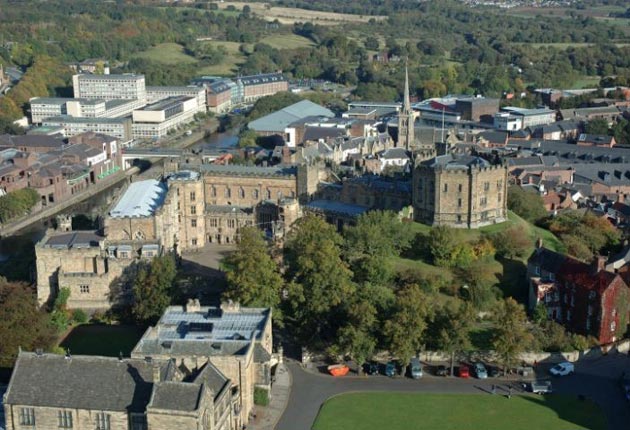Despots and academia: more scandals 'likely'

Your support helps us to tell the story
From reproductive rights to climate change to Big Tech, The Independent is on the ground when the story is developing. Whether it's investigating the financials of Elon Musk's pro-Trump PAC or producing our latest documentary, 'The A Word', which shines a light on the American women fighting for reproductive rights, we know how important it is to parse out the facts from the messaging.
At such a critical moment in US history, we need reporters on the ground. Your donation allows us to keep sending journalists to speak to both sides of the story.
The Independent is trusted by Americans across the entire political spectrum. And unlike many other quality news outlets, we choose not to lock Americans out of our reporting and analysis with paywalls. We believe quality journalism should be available to everyone, paid for by those who can afford it.
Your support makes all the difference.The London School of Economics, which is trying to repair the damage done to its reputation by its links with the Gaddafi regime in Libya, is not the only UK university that has accepted money from repressive governments.
Saudi Arabia has been a much more lavish investor in British higher education than Libya. China and Iran have also put money into universities here. And despite the humiliation of the LSE, the practice of accepting money from abroad could spread because of Government pressure on universities to find sources of funds other than the British taxpayer.
Robin Simcox, a researcher at the Centre for Social Cohesion, said yesterday that the political furore that has led to the resignation of Howard Davies, the LSE's director, was "inevitable" given the willingness of universities to accept fund from dictatorships. He warned something similar could happen again. Several of the most prestigious universities in the country, including Oxford, Cambridge, Edinburgh and Durham, have risked placing themselves in a similar predicament to the LSE.
The Oxford Centre for Islamic Studies, which is described as an "independent centre" at Oxford University was given £20m by the late King Fahd of Saudi Arabia in 2008. A motion on the Commons order paper by Tory MP Robert Halfon claims the centre has had £75m in total from 12 Middle Eastern rulers.
Cambridge University received £8m from Prince Alwaleed bin Talal of Saudi Arabia in 2008 towards a new research centre for Islamic studies. Edinburgh University also received £8m from Prince Alwaleed in the same year.
Durham University's Centre for Iranian Studies has been embroiled in controversy several times. Last year, the centre hosted a seminar funded by a £5,000 grant from Iran, held, coincidentally, on the day the Tehran government announced the executions of two young men involved in protests against the regime.
Two academics who were due to speak pulled out, but the seminar heard from the cultural attaché from the Iranian embassy in London, a hardline supporter of Ayatollah Ali Khamenei.
Last month, Wikileaks revealed that the US embassy in London was keen for these links between Durham University and Iran to be kept up because contact between Iranians and the west are all too rare.
Liverpool John Moores University has had contracts with Libya totalling £1.27m, which the university's vice-chancellor, Professor Michael Brown, has vigorously defended. He told the Liverpool Daily Post: "We have nothing to be embarrassed of whatsoever. Our work in Libya was about improving medical facilities, which are woeful."
In 2003, Exeter University signed an agreement in Tripoli to teach English to students in Libya. After the deal was signed, Colonel Gaddafi addressed a conference organised by the British Society for Middle Eastern Studies in Exeter, by video link.
Mr Simcox also believes that Confucius Centres in universities such as Manchester and Edinburgh, which teach Mandarin and Chinese culture, serve Beijing's propaganda aims.
"These are all countries that we know repress their own people. If we assume things are going to carry on benignly over the next few years, I think we're being naive," he warned.
Join our commenting forum
Join thought-provoking conversations, follow other Independent readers and see their replies
Comments